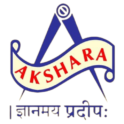Middle School - Classes IV to VII
Languages
Assessment
Here's a comprehensive overview of our assessment methods:
Enrichment’s activities
yoga
Yoga enriches school children's lives by promoting physical health, mental clarity, and emotional balance, laying a foundation for lifelong well-being and academic success.
DANCE
Dance brings joy, teamwork, and self-expression to school children, fostering confidence, creativity, and cultural appreciation while promoting physical fitness in a vibrant and inclusive environment.
abacus
The abacus enriches children's learning by boosting mental math skills and concentration, offering a hands-on tool for problem-solving and confidence in math.
karate
Karate enriches children's lives with discipline, confidence, and respect, fostering physical fitness and mental focus, instilling valuable life skills in a supportive environment.
